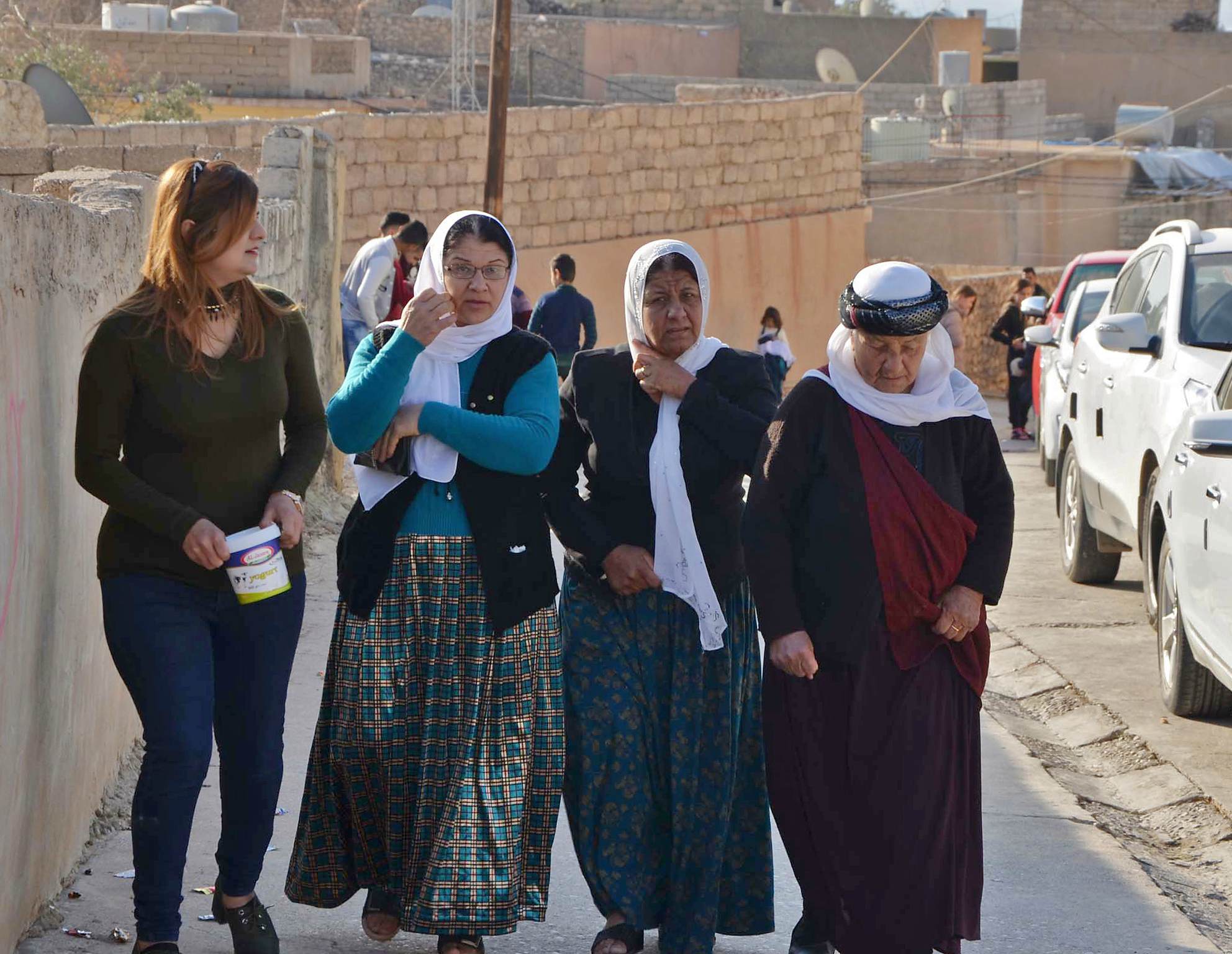
Little was known about the Yazidis prior to the infamous brutalisation of the community, which included killing men en masse and abducting thousands of girls and women as "sex slaves".
As the sect prepares to mark five years since the crisis, here is some background.
The Yazidi faith emerged in Iran more than 4,000 years ago and is a 'closed' faith, meaning one cannot convert to it.
Adherents believe in one God to whom they pray by facing the sun.
They also worship seven angels - especially Melek Taus, the Peacock Angel.
In their traditional homeland Sinjar, this Kurdish-speaking sect relied mainly on farming to get by.
Their holiest site is Lalish, a serene stone complex of shrines and natural springs in Iraq's mountainous northwest where visitors must walk barefoot.
The faith is led by a five-member High Spiritual Council based in nearby Sheikhan, which includes both the worldwide 'prince' of Yazidis and Baba Sheikh, their religious chief.
Yazidis are organised into three castes - sheikhs, pirs, and murids - and cannot wed across them or outside the sect. Children are Yazidi only if both their parents are.
Over time, the faith has integrated elements from other religions: children are baptised in holy water like Christians, boys are circumcised and men can take up to four wives like Muslims.
Of the world's nearly 1.5 million Yazidis, the largest number - 550,000 - lived in Iraq, with smaller numbers in Kurdish-speaking areas of Turkey and Syria.
Decades of emigration have seen sizable Yazidi populations spring up across Europe too, chiefly in Germany which is home to around 150,000.
Other communities can be found in Sweden, France, Belgium and Russia.
Former Yazidi sex slave set to marry US army interpreter
But since IS swept across Sinjar in 2014, around 100,000 emigrated from Iraq to Europe, the US, Australia and Canada. Around 360,000 still live in displacement camps scattered across northwestern Iraq.
Only a few thousand have been able to return to Sinjar, where most homes remain in ruins and services like electricity, hospitals and clean water are scarce.
Their status as non-Arabs and non-Muslims has placed Yazidis among the most vulnerable minorities in the Middle East, where Orthodox Muslims have derided them as "devil-worshippers".
Yazidis say they have been subject to 74 'genocides', including the IS attack in 2014.
One of the worst, according to the High Spiritual Council, saw 250,000 Yazidis perish several hundred years ago.
They were also persecuted by the Ottoman Empire in the early 1900s and more recently by Iraqi dictator Saddam Hussein, whose iron-fisted rule between 1979 and 2003 forced thousands of Yazidi families to flee.
IS seized Sinjar in August 2014, unleashing a brutal campaign against the Yazidis that the United Nations has said could amount to genocide.
According to religious authorities, more than 1,280 Yazidis are confirmed to have been killed by IS, leaving several hundred children orphaned. Nearly 70 shrines were destroyed.
Since IS lost its last shred of territory in Syria in March, dozens of Yazidi women, girls and boys have been freed and reunited with their families in Iraq.
More than 6,400 Yazidis were abducted, of whom around 3,300 - mostly women and girls - have returned alive. The rest remain missing.
More than 70 grave sites have been identified across Sinjar containing the remains of IS victims, of which 12 have been exhumed as part of a probe carried out by the UN, Iraq's government and other agencies.
Some women who had been forced to bear the children of IS fighters have left them in neighbouring Syria, as they would not have been accepted by the minority.

















COMMENTS
Comments are moderated and generally will be posted if they are on-topic and not abusive.
For more information, please see our Comments FAQ